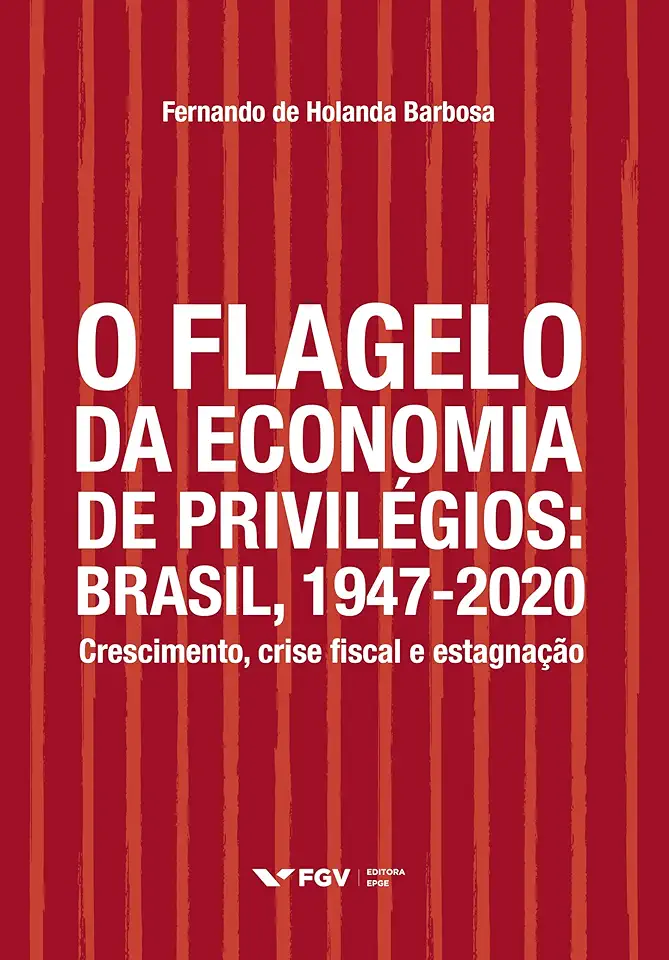
The Scourge of the Privilege Economy - Brazil, 1947-2020: Growth, Fiscal Crisis and Stagnation - Fernando De Holanda Barbosa
The Scourge of the Privilege Economy: Brazil, 1947-2020: Growth, Fiscal Crisis and Stagnation - Fernando De Holanda Barbosa
A Comprehensive Analysis of Brazil's Economic Challenges
In his groundbreaking book, "The Scourge of the Privilege Economy: Brazil, 1947-2020: Growth, Fiscal Crisis and Stagnation," Fernando De Holanda Barbosa presents a compelling and meticulously researched analysis of Brazil's economic trajectory from 1947 to 2020. Barbosa argues that Brazil's persistent economic challenges stem from a deeply ingrained "privilege economy," characterized by a concentration of wealth and power among a select few, leading to inequality, fiscal crises, and economic stagnation.
Key Insights and Arguments
1. The Privilege Economy: A Structural Impediment to Growth
Barbosa identifies the privilege economy as the root cause of Brazil's economic woes. This system favors a small elite at the expense of the majority of the population, resulting in a skewed distribution of income and wealth. The concentration of economic power in the hands of a few privileged individuals and corporations stifles competition, innovation, and inclusive growth.
2. Fiscal Crisis: A Symptom of Deep-Rooted Problems
Brazil's recurrent fiscal crises are not isolated events but rather symptoms of the underlying privilege economy. Barbosa demonstrates how the concentration of wealth leads to regressive tax policies, excessive public spending, and unsustainable levels of public debt. These factors combine to create a vicious cycle of fiscal imbalances, undermining the government's ability to invest in essential public services and infrastructure.
3. Stagnation: The Inevitable Consequence
The privilege economy and the resulting fiscal crises have led to chronic economic stagnation in Brazil. Barbosa argues that the lack of inclusive growth, coupled with the absence of structural reforms, has prevented Brazil from achieving its full economic potential. The country's economy has been trapped in a cycle of stop-and-go growth, punctuated by periods of recession and high unemployment.
A Call for Transformative Change
Barbosa concludes his book with a powerful call for transformative change to break free from the scourge of the privilege economy. He proposes a comprehensive set of policy recommendations aimed at promoting inclusive growth, reducing inequality, and fostering a more sustainable and just economic system. These recommendations include progressive tax policies, investments in education and healthcare, land reform, and measures to strengthen competition and innovation.
Why You Should Read This Book
"The Scourge of the Privilege Economy" is a must-read for anyone interested in understanding the complex economic challenges facing Brazil. Fernando De Holanda Barbosa's rigorous analysis and compelling arguments provide a fresh perspective on Brazil's economic trajectory and offer valuable insights for policymakers, economists, and anyone concerned about the country's future.
This book is not just an academic treatise; it is a call to action, urging readers to confront the systemic issues that have held Brazil back for decades. Barbosa's work is a powerful reminder that economic prosperity and social justice are not mutually exclusive but rather interdependent goals that can only be achieved through transformative change.
Conclusion
"The Scourge of the Privilege Economy" is a timely and essential contribution to the ongoing debate about Brazil's economic future. Fernando De Holanda Barbosa's thought-provoking analysis and policy recommendations offer a roadmap for breaking free from the shackles of the privilege economy and building a more inclusive and sustainable economic model for Brazil.